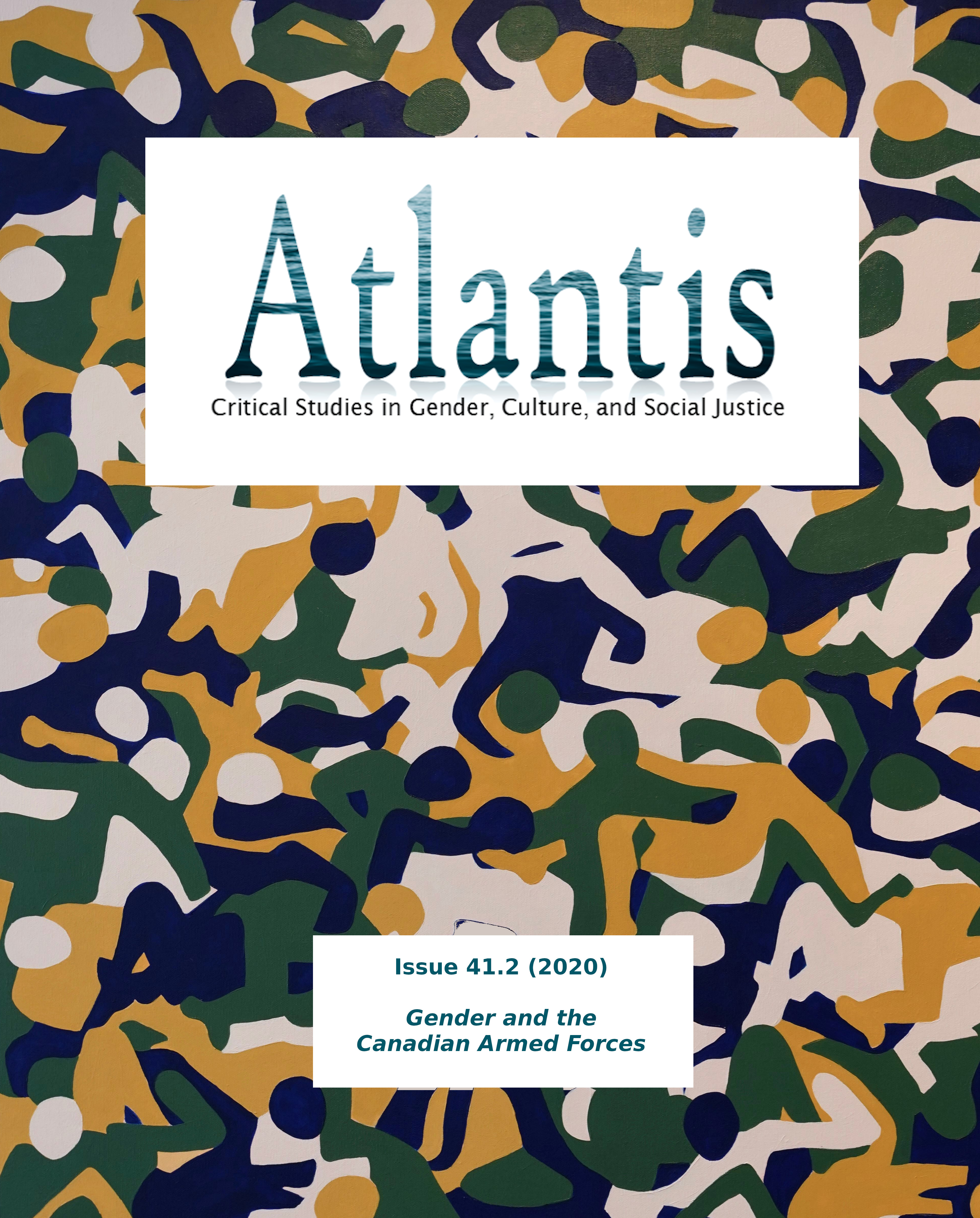“The Strength behind the Uniform”: Acknowledging the Contributions of Military Families or Co-Opting Women’s Labour?
Keywords:
Canadian Armed Forces, gender, gendered division of labour, heteropartriarchy, military, military families, military spousesAbstract
Since 2008, the Canadian Armed Forces (CAF) has called the military family “the strength behind the uniform.” The contributions and sacrifices of military families, and in particular spouses, are now formally recognized as essential to operational effectiveness, such as the ability to deploy troops quickly and easily. This represents a departure from previous eras, which took for granted the “naturalness” of a gendered division of labour in military households in support of organizational goals. Making visible and valuing this work parallels recent efforts by the CAF to improve the wellbeing of its people and advance gender equality in the organization and on operations. This article considers the gendered labour and power implications of formally recognizing the contributions of military families and spouses to the CAF. What does recognizing the military family as “the strength behind the uniform” mean for women and the gendered labour relations in military families? By drawing on analyses of policies, programs, and institutional rhetoric, alongside interviews by military family members, the article argues that in formally recognizing the family’s contribution to operational effectiveness, the CAF is co-opting the labour and loyalty of women spouses in military families. The institutional emphasis on “taking care of its people” obscures the ways in which the service required of military families is gendered and relies on women being constrained by traditional gender norms. These findings have implications for the genuine wellbeing of military families and for assessing feminist progress, or lack thereof, within the CAF institution.
Downloads
Published
Issue
Section
License
Copyright (c) 2020 Leigh Spanner

This work is licensed under a Creative Commons Attribution 4.0 International License.
Authors who publish with this journal agree to the following terms:
1. Authors retain copyright and grant the journal right of first publication, with the work simultaneously licensed under a Creative Commons Attribution 4.0 International License that allows others to share the work with an acknowledgement of the work's authorship and initial publication in this journal.
2. Authors are aware that articles published in Atlantis are indexed and made available through various scholarly and professional search tools, including but not limited to Erudit.
3. Authors are able to enter into separate, additional contractual arrangements for the non-exclusive distribution of the journal's published version of the work (e.g., post it to an institutional repository or publish it in a book), with an acknowledgement of its initial publication in this journal.
4. Authors are permitted and encouraged to preprint their work, that is, post their work online (e.g., in institutional repositories or on their website) prior to and during the submission process. This can lead to productive exchanges, as well as earlier and greater citation of published work. Read more on preprints here.







